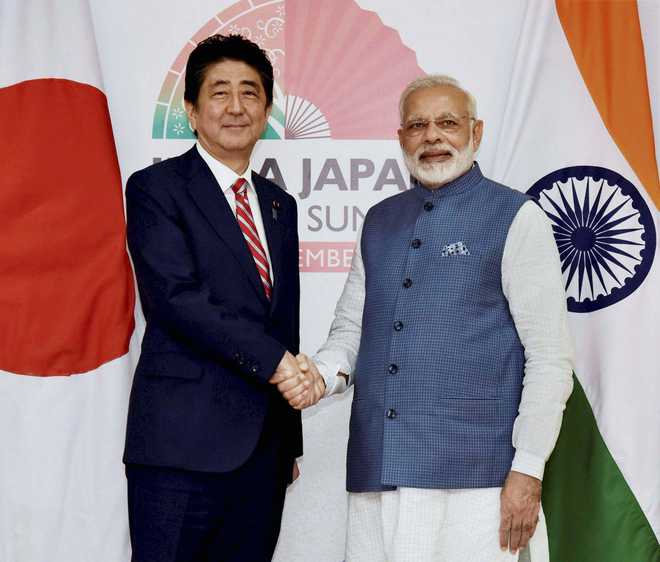Modi, Abe jointly Lay foundation stone for Rs 1.08 lakh-cr Ahmedabad-Mumbai high-speed train; 15 agreements signed GANDHINAGAR
(TIP): It may have been a dream come true for PM Narendra Modi when, on September 14, he and his Japanese counterpart, Shinzo Abe jointly laid the foundation stone of India’s first much-hyped Rs 1.08 lakh crore bullet train corridor between Ahmedabad and Mumbai.
The two Prime Ministers also oversaw the signing of 15 memoranda of understanding, including on disaster risk management, skills development, connectivity, civil aviation and science and technology. On the second and concluding day of Abe’s visit, the two leaders issued a joint statement at the end of the 12th Indo-Japan Joint Summit.
Speaking at the business summit, Abe said the foundation of the friendship between the two countries was laid when his grandfather, who was the then Prime Minister, visited India 60 years ago and his then Indian counterpart Jawaharlal Nehru accepted him with open arms though Japan then had just started to recover from the battering of the World War.
“Today I and Modi have decided to start a new chapter in the friendship and develop stronger bonds between the two countries,” he said.
Modi described Abe as a “great friend of India” and his “best friend”. Modi said in 2016-17, Japan invested $4.7 billion in India, 80% higher than the previous year. “Japan is the third largest investor in India. This shows the optimism in Japan about India’s economic development and bright future,” he said.
Expecting the bullet train project to be completed by 2022-23, Abe said it would stand out as a towering example of the growing close ties between the two countries. He hoped that during his next visit to Gujarat, he would “come to Ahmedabad in the bullet train from Mumbai with Modi beside him, enjoying the beautiful scenery of India”.
Both PMs also unveiled the plaque for an institute in Vadodara to train about 4,000 personnel to run the bullet train. The project would provide direct and indirect employment to about 20,000 people.
